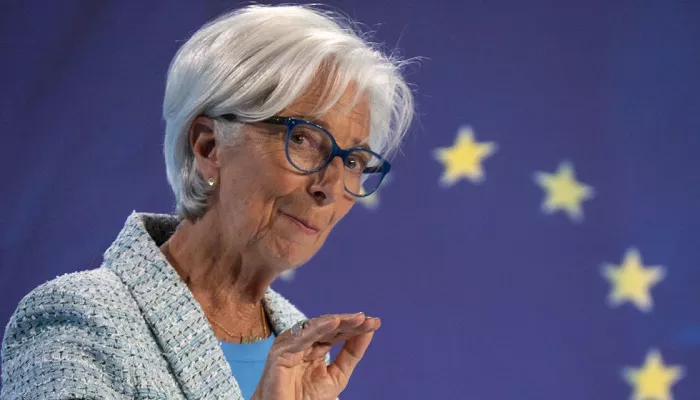European Central Bank President Christine Lagarde is urging major reforms to boost the euro’s role as a global reserve currency and reduce dependence on the U.S. dollar.
In a column for the Financial Times, Lagarde outlined the strengths and weaknesses of the euro and explained what changes are needed for it to compete with the dollar’s dominant position in international finance. She said the global order is undergoing major changes, with trade increasingly shaped by protectionism, zero-sum thinking, and bilateral power politics.
Currently, the euro makes up 20% of global foreign-exchange reserves—far behind the dollar’s 58%. The dollar’s dominance is often summed up by the acronym TINA: “There Is No Alternative.” Lagarde believes changing that could benefit the eurozone by lowering borrowing costs, reducing exchange rate swings, and protecting Europe from what she carefully referred to as “coercive measures.” But for now, many investors seeking alternatives are turning to gold, not the euro.
Lagarde laid out several key reforms that could help the euro rise to greater prominence and earn what former French President Valéry Giscard d’Estaing once called the “exorbitant privilege” of reserve currency status.
First, she said Europe must become a stronger and more dependable ally. The region has already pledged to increase defense spending and rebuild its military strength to earn greater global trust.
Second, she emphasized the need to boost Europe’s economy. That means promoting stronger growth, developing deeper and more reliable financial markets, and offering attractive, high-quality assets to investors. At present, Europe’s economic growth is weak, and there is a shortage of safe, high-grade bonds for global investors.
Lagarde also called for completing the EU’s single market, unifying its capital markets, and cutting excessive regulation. More cooperation and investment in key industries would help strengthen Europe’s economic standing on the world stage.
Finally, she said strong institutions are essential to win investor confidence. She praised the EU’s system of checks and balances, legal certainty, and the independence of its institutions. But she warned that to fully realize these strengths, Europe must remove a major obstacle: the power of a single member state to veto decisions.
“A single veto must no longer be allowed to stand in the way of the collective interests of the other 26 member states,” she wrote. Removing that barrier, she said, could allow Europe to finally seize its “global euro moment.”


